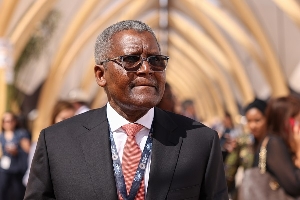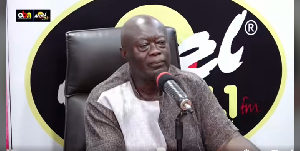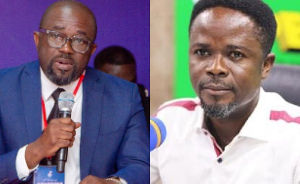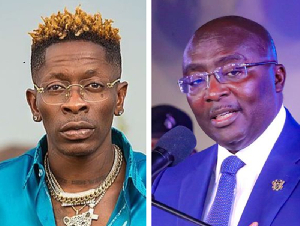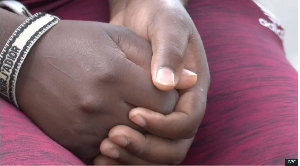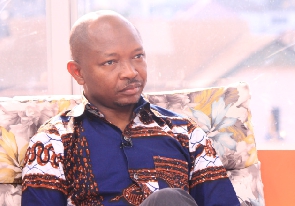African billionaire Aliko Dangote is wealthier than ever now that his long-awaited Nigerian oil refinery is up and running. But his mood suggests a man who just built his dream house only for the roof to start leaking.
The Dangote Refinery outside Lagos is the biggest single-train oil refinery in the world and one of the most complex, capable of processing most global crude types. It has the potential to transform Nigeria’s economy by making the country self-reliant for fuel. And it’s more than doubled his net worth to $27.8 billion, according to the Bloomberg Billionaires Index.
He said he wouldn’t wish the experience on his worst enemy.
“I didn’t know what we were building was a monster,” Dangote, 67, said during a recent visit to New York. “The pressure was coming from different directions, people confusing us, disturbing us every day with different media stories that it will never work, it will never work, it will never work.”
Since the refinery started running in January, there have been disagreements with the government and state oil company, as well as concerns over its impact on locals and the environment. Dangote is smarting from the blowback, his tone quickly shifting from warm to bitter as he runs through the challenges.
For Dangote, who made his first billions in cement, the refinery was the most audacious undertaking of his 46-year career. Building it took 11 years and $20 billion, three-and-a-half times as long and more than twice as much as initially planned. He financed most of it himself.
Unparalleled Scale
Short in stature with neatly-trimmed graying hair, Dangote is an industrialist on an unparalleled scale. The bedrock of his empire is commodities: mainly cement but also sugar, salt and flour. His fortune is an anomaly in a country where 40% of the population lives below the national poverty line and sizable wealth is often tied to oil holdings.
Dangote’s critics call him a politically-connected monopolist, but he’s proud of his role in building Nigeria’s manufacturing sector. Before he went into business, Nigeria imported most of its cement — a literal building block of developing markets. Now it’s a net exporter of the substance. With the refinery, he saw an opportunity to do the same for the country’s oil industry.
He quickly ran into problems. The original site for the refinery was scrapped after four years of wrangling with local officials over land issues, he said. Dangote moved the site south to Lagos state where he met more resistance, this time from residents facing relocation (some of whom are reportedly still awaiting full compensation).
The new plot turned out to be mostly swamp which had to be dredged, reclaimed and lifted nearly 5 feet (1.5 meters) to avoid flooding from rising sea levels. Dangote’s holding company built a dam, its own port, a massive granite quarry and bought 332 cranes.
Two years into construction, Covid hit. Some of its suppliers went bankrupt and the project locked down, with all workers required to stay on-site. Meanwhile, Dangote said he was paying $50 million to $60 million a year in interest for a $5.5 billion loan he’d acquired from a consortium of local banks.
Through it all, he said his goal was to address Nigeria’s economic paradox. The country is Africa’s biggest oil producer but a dearth of functioning domestic refineries meant it was exporting its own crude, refining it abroad, then re-importing it as fuel in a loop rife with waste.
Yet when Dangote’s refinery opened earlier this year it had to source crude from abroad, adding to its costs, because most of the country’s output was tied up in long-term contracts.
It points to the difficulty of turning a profit in a country with a spiraling currency, a history of popular fuel subsidies and steep refining costs. Negotiations with the government and the state-owned Nigerian National Petroleum Corp. over foreign-exchange rates, crude supply and gas prices — all critical to Dangote’s bottom line — have sometimes been heated.
For most of his career, Dangote has had close relations with Nigeria’s leaders, who supported his economy-boosting factories. Not so with current President Bola Tinubu, who took office last year. In January, the anti-graft commission raided Dangote Group’s offices as part of an investigation into the foreign-exchange dealings of a former official. Dangote Group called the visit an “unwarranted embarrassment” and said it hadn’t been accused of wrongdoing.
A spokesman for the Nigerian government declined to comment.
The cooling relationship has coincided with Dangote’s increasingly blunt tone. At a conference over the summer he compared the “mafia in oil” unfavorably to the drug mafia. He hasn’t been shy about his disregard for the state-owned NNPC, which is essential to helping him obtain local oil to refine.
To keep them sweet, he struck a deal in 2021 to sell them a 20% stake in the refinery at a $13.8 billion valuation. It hasn’t worked out perfectly – that stake was later winnowed to 7.2% — but he said the “good price” he offered was a necessity. If you try to fight them, he said, you will fail.
“It’s an industry which you know is full of games,” he said. “It‘s an industry where people are very corrupt.”
A spokesman for the NNPC declined to comment.
Typically somewhat press-shy, Dangote’s sudden stridency is giving his public perception a boost, said Zainab Usman, a political economist and director of the Africa Program at the Carnegie Endowment for International Peace.
“He made this $20 billion investment to help the country and there’s this sense that a cabal of corrupt politicians, who saw the refinery as a threat, are trying to frustrate him,” she said. “For him to be speaking very clearly about it has earned him a lot of respect.”
‘Real Legacy’
Maintaining wealth of any level has become substantially harder in Nigeria of late. The naira has lost more than two-thirds of its value against the dollar following Tinubu’s relaxing of foreign exchange restrictions.
Dangote boasts that 80% of his business is dollarized. Next year he said Dangote Group will be the biggest supplier of dollars to Nigeria, whose economic woes have been exacerbated by a shortage of the US currency.
“Our strategy is whatever we do, we generate as much foreign exchange as possible,” he said. “That will shield us from the issues of currency devaluation in Africa.”
Dangote’s ties to his home country are deep. He’s lived in the same house, a Lagos mansion, for 34 years. But his assets, like those of most members of the extremely rich, are stateless, held by an entity based in the Cayman Islands called Greenview. He’s opening a family office in Dubai to diversify and manage his fortune that will be run by his daughter Halima, who moved there this summer.
He’s looking to co-invest in deals and potentially partner with other billionaires, similar to a fund he’s set up with friend David Rubenstein, co-founder of private equity firm Carlyle Group Inc.
He has a charitable foundation that donates millions of dollars every year but he wants to give away more, $10 billion over time. He talks of stepping back and transitioning the business to his children and other family members, including a grandson who’s finishing university next year. He laments that his daughters are already older than he was when he got his first private jet (age 23) and built his mansion (33).
The strain of building the refinery has piqued his interest in diversifying, though he’s proud that the industrial sector will define him.
“I’m passionate about it because you’re going to leave a real legacy, especially in Africa,” he said. “I’m making my country and continent self-sufficient in things that they never ever dreamed of.”
He can’t resist drawing a comparison with Johann Rupert, the South African chairman of Cartier-owner Cie Financiere Richemont SA, who until recently was closing in on Dangote’s title of Africa’s richest person.
“Sorry, it’s better than selling bags,” he chuckled mischievously. “Some people have done really well by that too but it’s not the same.”
Watch the latest edition of BizTech below:
Ghana’s leading digital news platform, GhanaWeb, in conjunction with the Korle-Bu Teaching Hospital, is embarking on an aggressive campaign which is geared towards ensuring that parliament passes comprehensive legislation to guide organ harvesting, organ donation, and organ transplantation in the country.
Click here to follow the GhanaWeb Business WhatsApp channel
Business News of Thursday, 17 October 2024
Source: bloomberg.com





